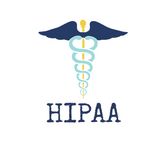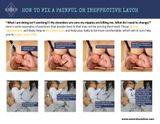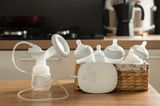When you're pregnant, one of the many decisions you'll need to make is how you will feed your baby. After you've committed to breastfeeding or chestfeeding, the next step is choosing who you will hire to help you if you run into issues.
A lot of parents struggle with breastfeeding or chestfeeding—while 96% of parents delivering in Alameda County hospitals provide human milk within the first 48 hours, only 78% of parents are exclusively breast/chestfeeding upon discharge.
Once at home, feeding challenges may continue, leading many parents to seek out support only after challenges have arisen.
There are many lactation consultants in Berkeley, so how do you choose the right one for you?
Whether you are preparing before your baby arrives or are doing research to get help ASAP, here are some tips for choosing a lactation consultant in Berkeley CA.
Get familiar with your options
In-patient (hospital) lactation support
Most (if not all) of the local hospitals offer breastfeeding/chestfeeding support while in the mother–baby unit. Sometimes there will be an International Board Certified Lactation Consultant (IBCLC) available, and other times latch & positioning help is provided by a "lactation nurse" or Certified Lactation Counselor.
These short visits can be helpful for addressing basic issues that may contribute to latching pain or intake issues, but due to limited time & resources, the support may not be in-depth enough to completely resolve issues once you get discharged.
Additionally, many parents are discharged prior to "their milk coming in"—the informal way to describe the transition from small amounts of colostrum to larger volumes of human milk—and may need help outside of the mother–baby unit, managing issues such as engorgement.
Not all hospitals in the area are equally supportive of breast/chestfeeding. It can be helpful to ask friends and family who have delivered locally for their experience with infant feeding support in the hospital. If you’re looking for accredited breastfeeding-friendly hospitals, Highland Hospital and San Francisco General Hospital are the only two Baby-Friendly Hospitals close to Berkeley.
Outpatient lactation support
Sometimes hospitals will offer support after discharge, usually in a different part of the hospital or at a satellite follow-up clinic. These consults tend to be longer than the inpatient visit, can address the common issues that pop up within the first week or two after delivery, and are often free to you as it’s billed directly to your insurance as part of your delivery.
Unfortunately, there are not many hospitals locally that offer lactation & breast/chestfeeding support in an outpatient setting. Sutter Health/Alta Bates Summit, Kaiser and UCSF are the only hospitals that mention offering outpatient breastfeeding/chestfeeding support online. You can always call the hospital you plan to deliver at (or delivered at) to ask if they offer outpatient support & how many visits are covered.
Additionally, your child’s pediatrician's office may have a Lactation Consultant (IBCLC) on staff. Again, calling in advance to check can be helpful.
Private practice lactation support
Not including my own practice, between San Francisco & Walnut Creek there are 13+ Lactation Consultant practices that provide lactation services.
Private practice LCs address a wide array of issues including the more complicated cases that require more long-term care, such as inducing lactation, increasing milk supply, resolving tongue or lip tie issues, etc.
In addition to providing help for specific issues, many LCs in private practice offer prenatal breast/chestfeeding consults and breastfeeding/chestfeeding classes. At Woven Lactation, in addition to prenatal support & classes, we also offer therapeutic breast massage—something you won’t find anywhere else locally!
Visits typically run 90–120 minutes, but this may vary based on the type of consult you need and if it’s an in-clinic, in-home, or virtual consult.
Peer support groups
Not everyone is going to need or want, one-on-on, problem-specific support. Having a baby can be very isolating & and many times parents just need a bit of reassurance & support from other parents who are dealing with similar issues.
La Leche League is a long-standing organization that offers peer support groups for breastfeeding parents. Prior to Covid-19, meetings would take place in person, but now LLL meetings in Berkeley take place online, the first Saturday of the month at 10 am.
It’s worth noting that La Leche League has historically NOT been LGBTQIA+ friendly. LLL international has made great strides forward and Berkeley, Alameda, San Leandro, and Oakland groups are all run by leaders making an effort to be inclusive.
Government programs
WIC is a government aid program that provides nutrition services & subsidies to low-income pregnant and lactating parents and children under the age of five.
Many WIC offices have peer counselors on staff to help with common breast/chestfeeding issues and Berkeley’s WIC office located on University Ave is no exception. They also have breast pumps you can rent & they offer breastfeeding classes.
Consider your budget & insurance coverage
So many people think about all the "stuff" they will need after the baby gets here, but very few parents set money aside specifically for breastfeeding/chestfeeding issues.
Lactation care is not cheap, especially when you have to pay out of pocket for each visit. In the Berkeley area, the average cost of an initial visit runs between $250–$350 dollars, with follow-ups ranging between $200–$275.
Many providers take insurance, receiving payment directly from the insurance company. Each plan is different even amongst commonly accepted plans, so it’s important to check with your insurance company.
At Woven, we make every attempt to make our comprehensive services affordable to parents
- We take Aetna, Blue Cross Blue Shield-PPO, and Cigna-PPO insurances.
- We offer a deeply discounted cash pay pricing (2 visits for the price of one!) in addition to providing a superbill so that you can file for reimbursement.
- We also offer a sliding scale to those who need support but paying out of pocket in full would provide financial hardship.
Visit each LC’s website to get a feel for their vibe
Sometimes a parent can have a horrible experience with a highly skilled LC because of a mismatch in personalities.
In a worst-case scenario, an LC may pressure a parent into doing something that may not align with their goals or come across as judgemental of a parent's choices.
Reading through an LC’s website can help you develop an understanding of their philosophy. Some questions a website can answer include
- Do they sound pushy or judgemental?
- Do they use gendered language but claim to be inclusive? (if inclusivity is important to you)
- Do they seem open to supporting my goals?
- Do they come across as professional?
- Do they seem up to date on the needs of the average parent today?
When in doubt, you can always reach out directly to ask a few questions to help you determine if they would be a good fit for you.
Check their credentials
Not all Lactation Support professionals are best suited for every type of breastfeeding/chestfeeding issue, and with the wide range of credentials, it can be confusing knowing which provider is best.
Here is a quick rundown of the most common options & the types of problems each credential can help with!
International Board Certified Lactation Consultant (IBCLC)
This is the highest achievable credential in lactation. As clinical providers, IBCLCs can help with any type of issue, including the most severe of challenges such as...
- Slow Infant Weight Gain/Weight Loss
- Feeding with anatomical differences to include cleft lip/palate
- Inducing lactation & relactation
- Mastitis Management
- Hormonal/Medical Causes of Low Milk Supply
- Lactation After Breast/Chest Procedures
...just to name a few!
Certified Lactation Counselor (CLC)
This is a non-clinical credential that can provide counseling about optimal and sub-optimal breast/chestfeeding. Because CLCs are non-clinical, they can’t provide clinical support but can provide help for
- Latch & Positioning in babies who are gaining well at the breast.
- Basic Pump Troubleshooting & Flange sizing
- Temporary dips in milk supply not due to medical or hormonal issues
- Plugged duct management
Certified Breastfeeding Specialist (CBS)
This credential is very similar to the CLC credential in scope, just offered by a different organization with a different training schedule. The CLC training is a 5-day course, whereas the average person going through the CBS program takes about 4 months to complete.
Similarly, a CBS can provide help for
- Latch & Positioning in babies who are gaining well at the breast.
- Basic Pump Troubleshooting & Flange sizing
- Temporary dips in milk supply not due to medical or hormonal issues
- Plugged duct management
There is much debate & confusion about the differences between the IBCLC, CBS, & CLC credentials. There are vast differences with regards to the amount of training, knowledge & experience between them at the time of certification. With that said, there are fantastic CLCs & CBS who provide high-quality care.
As a parent choosing who you want to work with, just note that if you’re having significant issues, an IBCLC will have the skills & scope to help. A good rule of thumb is if you’re having supply issues that haven’t improved within 48 hours of working with a CBS or CLC or if your baby is not gaining well, reach out to an IBCLC.
Evaluate their area of expertise
As mentioned above, IBCLCs are able to provide support for any & all lactation or breast/chestfeeding challenges; however, many IBCLCs choose to focus on an area of interest.
For example, we work closely with parents in the LGBTQ community & with parents of multiples and have the experience & expertise to provide exceptional care to parents in these unique circumstances.
In fact, we are the only provider in the area that actively seeks to provide support to parents in the LGBTQ community because we know how important high-quality care is for these families.
Determine if you want an in-home or in-clinic consult
In general, there is little difference between an in-home or in-clinic consult when it comes to the quality of the visit. Most IBCLCs with an office or making home visits use an infant scale for pre & post-feed weighs and carry supplies to help with feeding if necessary.
There are benefits for each setting worth considering
Benefits of an in-home visit
- Get help breast/chestfeeding in the space you typically feed in
- No travel time
Benefits of an in-clinic visit
- Don’t have to stress about cleaning up for a visitor
- You won’t have to clear a space for the scale or find a place to put your pets
- You don’t have to allow someone into your personal space (kitchen/bathroom) for handwashing
Ultimately it comes down to a personal choice & what you feel you can manage at the time of needing support.
Our office, located on Solano Ave, is super easy to get to (within 20 minutes of San Fransico, Oakland Zoo & Walnut creek!), has ample parking, and we typically have next-day appointments!
Look at their references & reviews
It’s an unfortunate truth that the majority of parents we work with will never leave a review. This is a common phenomenon across the board—the average number of reviews for IBCLCs in the Berkeley area is less than 2!
And we get it, the postpartum period is a crazy, hectic time, especially when dealing with breast/chestfeeding issues.
But, the reviews left on public forums can be invaluable in your search for finding the right LC for you. Many reviewers share information about their journey, which will give you an idea of how the LC can help you if you’re in a similar situation.
Most parents find us (at Woven, specifically) by word of mouth from happy past clients, recommendations by pediatricians, or referrals from midwives or doulas.
Conclusion
With so many options, choosing a lactation consultant to support you on your infant feeding journey can feel overwhelming.
The most important thing is that you feel comfortable with the provider you choose & trust in their ability to help you reach your goals.
The 7 tips above should help to make the process a little less intimidating and increase your confidence in selecting the best LC for you.
If you're interested in working with Woven, our online booking system makes it simple to schedule an in-clinic consultation.




